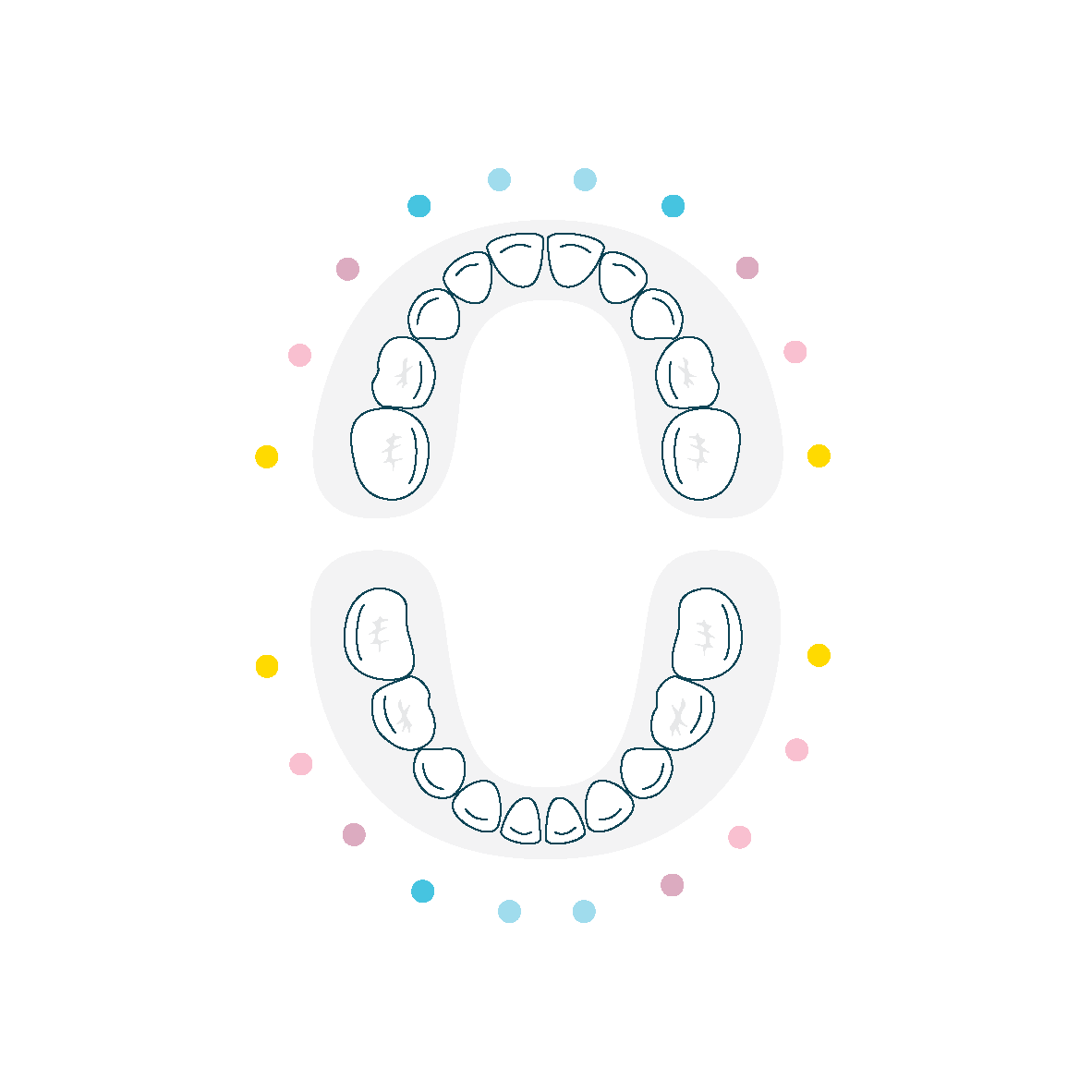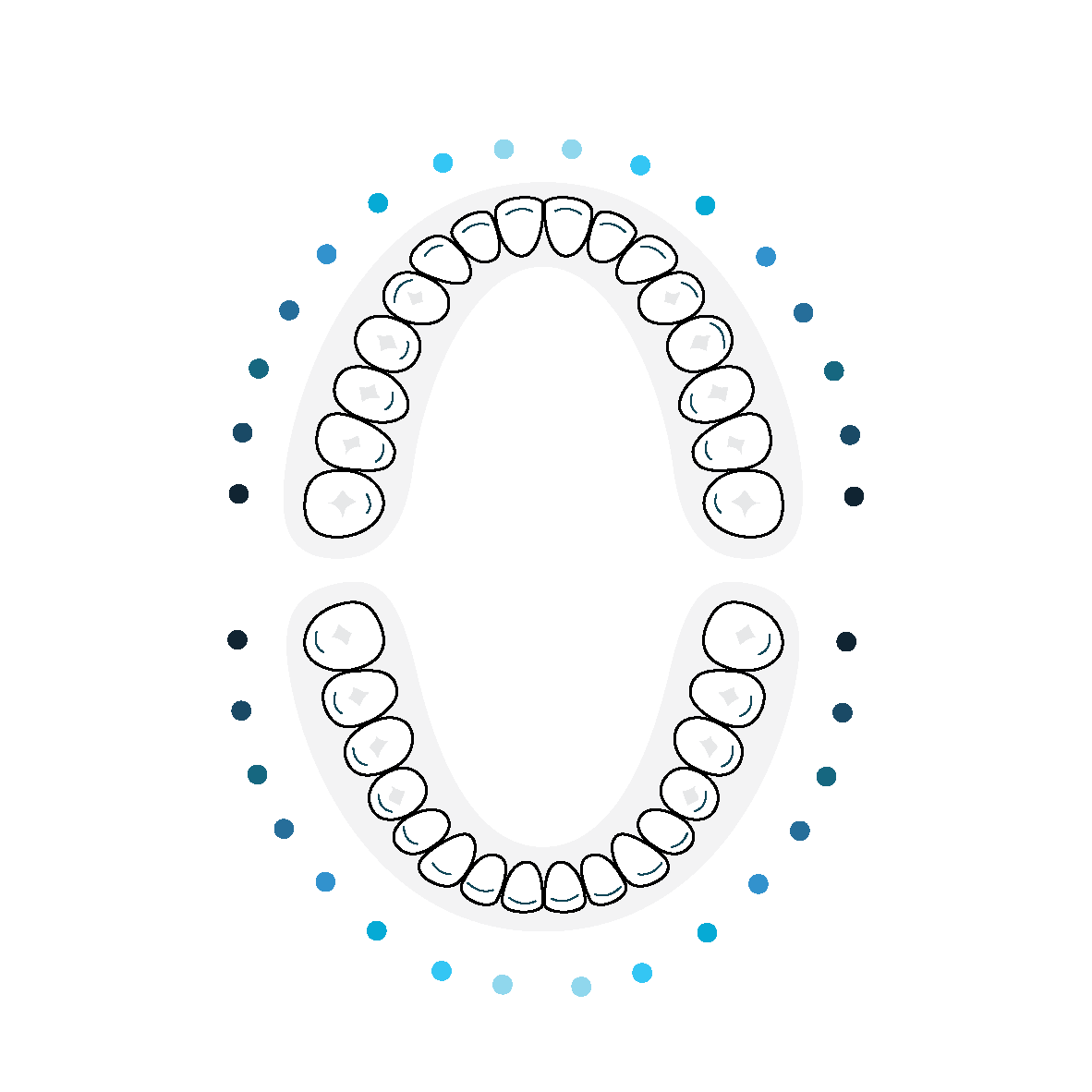+Guide to Children's Dental Health | Smiles & Grins
schedule an appointmentA child’s first visit to the dentist should be fun and exciting. Children are not born with a natural fear of the dentist, but they fear the unknown and also build up fear from family member’s negative experiences and stories. Our office makes a special effort to use pleasant, non-frightening, simple words to describe each treatment. We believe in ‘TELL-SHOW-DO’: Explaining the procedures and tools in an interactive way, showing/letting them touch and doing the treatment in a comfortable environment. We want you and your child to feel at ease from the moment your family arrives at our office.
American Academy of Pediatric Dentistry (AAPD) Recommends…
Children should visit the dentist by their first birthday or their first erupted tooth. It is important that your child’s newly erupted teeth receive proper dental care and benefit from proper oral hygiene habits right from the beginning.
When New Teeth Arrive
Your child’s first “baby” teeth will begin to erupt between the ages of six to 12 months (that is average but may be earlier or later), and will continue to erupt until about age three. During the time of tooth eruption, your child’s gums may feel tender and sore. To alleviate the discomfort from teething, we recommend that you rub a wet cloth across them or use a teething ice ring. DO NOT use any topical numbing oral gels (Orajel, Anbesol), as they can lead to overdosing.
The baby teeth are shed at different ages until 12 years old. Permanent teeth begin erupting around 6 years old (typically front lower incisors and back molars) and end around 21 years of age (wisdom teeth). Adults typically have 28 permanent teeth (32, teeth including wisdom teeth).
Preventing Tooth Decay
Tooth decay is caused by sugars left in the mouth after eating and specific bacteria convert those sugars into acids that break down tooth structure. Children tend to be at a higher risk of tooth decay for the following reasons: many children and adolescents do not practice regular, good oral hygiene habits. Proper brushing and flossing routines combined with regular dental visits help prevent tooth decay and swollen gums.
 Your child should visit the dentist every six months for regular dental cleanings and checkups. We recommend fluoride treatments twice a year along with cleanings to keep teeth their strongest. Dental sealants are also recommended because they “seal” the deep grooves in your child’s teeth, therefore preventing decay from forming in these hard-to-reach areas. Sealants last for several years, but will be monitored at your child’s regular checkups.
Your child should visit the dentist every six months for regular dental cleanings and checkups. We recommend fluoride treatments twice a year along with cleanings to keep teeth their strongest. Dental sealants are also recommended because they “seal” the deep grooves in your child’s teeth, therefore preventing decay from forming in these hard-to-reach areas. Sealants last for several years, but will be monitored at your child’s regular checkups.
| BABY TEETH (UPPER) | |||
|---|---|---|---|
| ERUPT | FALL OUT |  |
|
| Central Incisor | 8-12 mo (erupt) | 6-7 yr (fall out) | |
| Lateral Incisors | 9-13 mo (erupt) | 7-8 yr (fall out) | |
| Canine | 13-19 mo (erupt) | 9-11 yr (fall out) | |
| 1st molar | 13-19 mo (erupt) | 9-11 yr (fall out) | |
| 2nd molar | 23-33mo (erupt) | 10-12 yr (fall out) | |
| BABY TEETH (LOWER) | |||
|---|---|---|---|
| ERUPT | FALL OUT |  |
|
| Central incisors | 6-10 mo (erupt) | 6-7 yr (fall out) | |
| Lateral Incisors | 10-16 mo (erupt) | 7-8 yr (fall out) | |
| Canine | 17-23 mo (erupt) | 9-12 yr (fall out) | |
| 1st molar | 14-18 mo (erupt) | 9-11 yr (fall out) | |
| 2nd molar | 23-31mo (erupt) | 10-12 yr (fall out) | |
| ADULT TEETH (UPPER) | ||
|---|---|---|
| ERUPT |  |
|
| Central incisors | 7-8 yr | |
| Lateral Incisors | 8-9 yr | |
| Canine | 11-12 yr | |
| 1st premolar | 10-11yr | |
| 2nd premolar | 10-12 yr | |
| 1st molar | 6-7 yr | |
| 2nd molar | 12-13 yr | |
| 3rd molar | 17-21 yr | |
| ADULT TEETH (LOWER) | ||
|---|---|---|
| ERUPT |  |
|
| Central incisors | 6-7 yr | |
| Lateral Incisors | 7-8 yr | |
| Canine | 9-10 yr | |
| 1st premolar | 10-12 yr | |
| 2nd premolar | 11-12 yr | |
| 1st molar | 6-7 yr | |
| 2nd molar | 11-13 yr | |
| 3rd molar | 17-21 yr | |